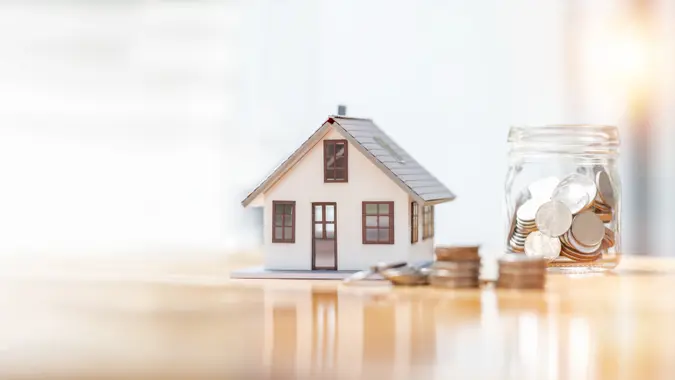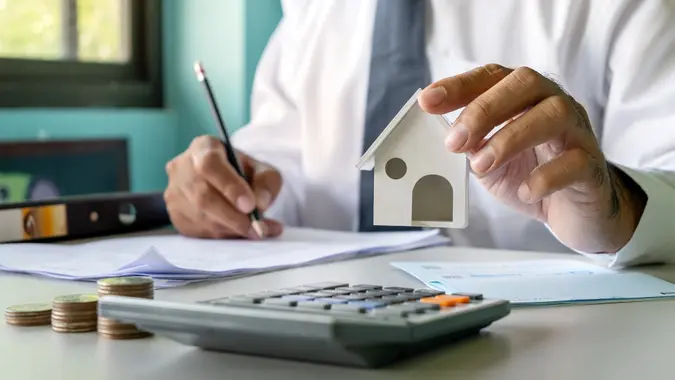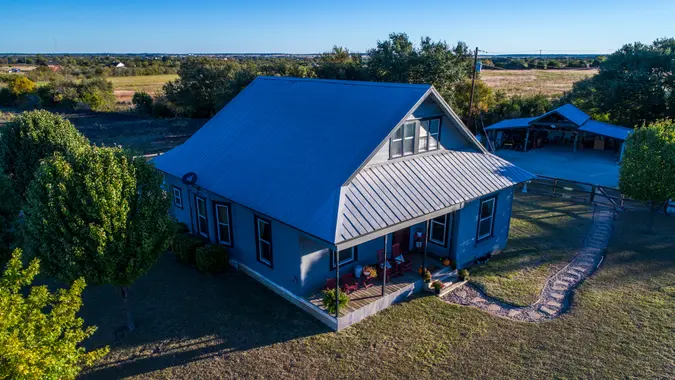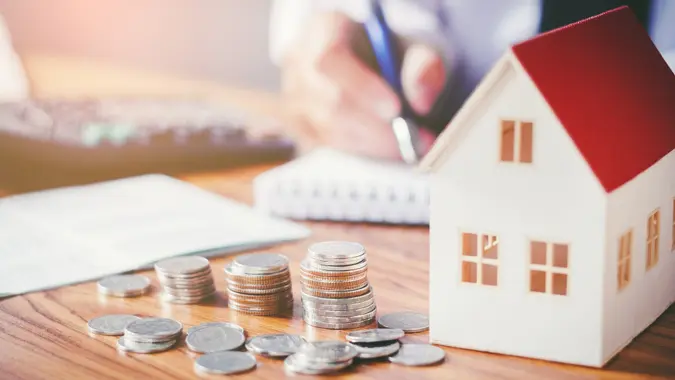I’m a Financial Planning Expert: 4 Loans You Should Always Pay Off Early

Commitment to Our Readers
GOBankingRates' editorial team is committed to bringing you unbiased reviews and information. We use data-driven methodologies to evaluate financial products and services - our reviews and ratings are not influenced by advertisers. You can read more about our editorial guidelines and our products and services review methodology.

20 Years
Helping You Live Richer

Reviewed
by Experts

Trusted by
Millions of Readers
In 2022, the average individual owed $101,915 in consumer debt, according to Experian. This debt includes credit cards, auto loans, personal loans, mortgages and more.
Regardless of what type of debt you have, most people will agree that it’s a good idea to pay it off as soon as possible. After all, repaying your debts can save you money on interest over the life of the loan, reduce the risk of missed payments and late fees, and free up some cash for other expenses. It can also lower your credit utilization ratio and improve your credit score.
But if you have multiple loans or credit cards, determining which one to focus on first can be tricky. Joseph Camberato, CEO at NationalBusinessCapital.com, and Andrea Woroch, family finance expert and money saving expert, both weighed in on which loans you should pay off first.
Keeping in mind that everyone’s situation is different, here’s what they suggested.
High-Risk Loans
Sometimes called secured loans, a high-risk loan is a loan that’s tied to an asset like a car or property. If you don’t pay back the loan on time, or if you miss too many payments, you could risk losing your asset.
“First, you’ll want to tackle those high-risk loans — the ones tied to your home or other assets where missing a payment could mean waving goodbye to your property. That’s definitely a priority,” said Camberato. “Paying off high-risk debt is like a safety net for your assets and lifestyle. Neglecting it could mean kissing your home or other valuable possessions goodbye.”
Plus, depending on the interest rate, you could save money by paying off these loans sooner. Take a mortgage loan, for example.
The average interest rate on a 30-year fixed-rate mortgage is 7.31% (as of October 2, 2023). Now, say you’ve taken out a $350,000 mortgage with that interest rate and repayment term. Not accounting for things like property taxes and homeowners insurance, your total loan cost (with interest) would be $864,675.81. This includes $514,675.81 in total interest payments. By paying off that mortgage early, you could save tens or hundreds of thousands of dollars in interest alone.
Now, take auto loans. These can also come with high interest rates and are secured using your vehicle as collateral, making them both expensive and risky to the borrower.
“Not only are auto prices up, but so are interest rates. The average interest rate for an auto loan is just over 6% for new cars and 10.27% for used cars, making it incredibly expensive to finance a car or truck,” said Woroch. “In fact, a report from Experian found that the average monthly car payment for new cars is $716 and $526 for used cars. Considering cars come with rapid depreciation, you’re better off paying down this loan as fast as possible to save more money on interest fees.”
High-Interest Loans
If you have high-interest debt, or loans with a variable interest rate, this should be your next priority.
“Next up, high-interest debt should be on your hit list. Also, keep an eye on loans with variable interest rates that might sneak up on you in the future. If you’re in a low-rate environment, think about refinancing those to a fixed rate for some stability,” said Camberato. “High-interest debt…is like a money pit. You’re just throwing your hard-earned cash into the abyss with those interest payments. Knocking it out early frees up some cash for other important items.”
What’s considered “high interest” varies from person to person. However, any loan with a two-digit interest rate or higher would generally count. Loans that end up costing you tens of thousands of dollars or more in interest would also qualify.
“According to a report from Transunion, U.S. consumers are carrying an average credit card balance just over $5,700,” said Woroch. “Considering the average interest fee on credit cards now hovers around 21%, this type of debt is one of the most expensive and can derail your budget and keep your achieving other financial goals.”
Short-Term Loans
Once you’ve taken care of some of those high-interest and high-risk loans, it’s time to start paying off any short-term loans. Focus on the short-term debts that could end up costing you more money or hurting your monthly budget.
“Consider giving the boot to any other short-term loans that might turn into budget busters down the road,” said Camberato. “And if you’ve got private student loans, those should be on your list, too. Federal student loans come with some tax perks, but private student loans don’t offer the same benefits.”
Key benefits that may come with federal student loans include income-driven repayment plans and student loan forgiveness. Private student loans, meanwhile, may have higher or variable interest rates. They also rarely qualify for forgiveness.
“Private student loans can come with high interest fees, which vary depending on the term,” added Woroch. “You could be paying as [high as] 8.31% interest on these loans. You’re better off paying these down rather than investing the money because you likely won’t get a return that exceeds this interest. If you’re struggling to keep up with payments due to financial hardship such as unemployment or low income in comparison to your family size, you may be able to negotiate a lower payment plan.”
Low-Interest Credit Cards
If you have any low-interest or no-interest credit cards, start tackling those next to save you money on total interest and get yourself out of debt sooner.
“Once you’ve taken care of the big loans, you can start strategizing,” said Camberato. “Maybe you’ve got a 0% APR credit card that’s about to become a high-interest rate. That’s something to focus on, especially if you want to avoid getting hit with a hefty charge.”
With 0% interest credit cards, in particular, you benefit from a predetermined window where your credit card balance does not accrue interest. Once this window ends, you’ll then have to start paying interest on the current balance.
Bottom Line
If you have loans or credit card debt, take a moment to assess your financial situation and goals before deciding which ones to pay off first. Regardless of the order you choose, paying off your existing debts can be hugely beneficial in the short and long run.
“Paying off a loan early gives you some breathing room in the short term. You can redirect those funds to other areas of your life,” said Camberato. “And in the long run, it’s like a shield for your earning potential. By nipping unnecessary interest payments in the bud, you’re basically putting more money back in your pocket over time.”
One final thing to keep in mind is that some loans come with a prepayment penalty. This is essentially a fee the lender will charge if you pay off the loan early. See if any of your loans come with this fee and, if so, what it will cost you. This can also help you decide which loans to pay off early.
 Written by
Written by  Edited by
Edited by 

























